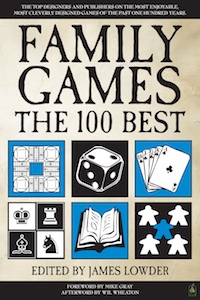 If you’ve been following my blog, you may have seen my earlier post about Write First, Sell Later where I express how I feel it’s important to separate your promotional time from your writing time.
If you’ve been following my blog, you may have seen my earlier post about Write First, Sell Later where I express how I feel it’s important to separate your promotional time from your writing time.
One of the things that I’ve found is that a timer isn’t “enough” to discipline me to get off of social media or blogging channels to write, write, write. Why? Well, blogging requires one mindset for me; social media requires another. In many ways, blogging requires a “voice” which may vary depending upon the blog. Here? I typically use my “professional voice” which doesn’t include all the random creative bits that tend to float around in my head. I’m much more random when I use Twitter, partially because it doesn’t take me any time at all to shoot off a thought. Blogging, on the other hand, can take me a bit, especially if I’m feeling particularly coherent. Fiction is a lot different than blogging, because I try not to worry about that coherency as much when I’m writing the first draft. Rather, I’m more concerned with having a cohesive plot or consistent characters. Subsequently, I’ve learned that blogging + writing stories = a recipe for disaster. If I’m not careful, blogging can actually hurt my writing because I spend more time on the first draft than I normally do. Like every writer knows — you can’t edit a blank page.
This month, I started using a different method of assessing what projects I want to complete. As geeky as it may sound, I set up a project management plan and assigned blocks of time (Yes, just like you did when you were in college) to different writing styles. Then I prioritized these chunks into what I needed to get done first. What I’m finding, is that this prioritization method is helping my mindset stay where it needs to be. I don’t feel as pressured to get something done, because I’ve got a crystal clear picture of what is important to me based on its intrinsic or financial value. Obviously, paying gigs come first, which is one of the reasons why my novel revisions are a lower priority during the first half of this month. I also add in my free time, to ensure that I’m not killing myself with work, and I bump “new” or “unpaid” opportunities to the bottom of the list.
It may sound strange, but this form of organization is what is working for me on several levels because I know that I have to cater my language to the audience I’m writing to. To help keep me focused on where my priorities lie, I am becoming the mistress of mini-tasking which, in turn, is also helping me to pace myself and manage my work load.
It’s no secret that I’m working on a hefty round of revisions for a novel, but what you may not know is that I’m also planning ahead. “If” the novel sells and “if” I’m able to write another one, I’ll probably have to manage writing a new novel while working for my day job. In my mind, establishing discipline is really important to a writer’s life, regardless of how busy or how successful you are. This is just my way of doing just that.
What about you? How do you juggle blogging with social media and your writing?


 I was fortunate to attend a presentation given by author
I was fortunate to attend a presentation given by author  I joined a local romance writer’s group last year and, admittedly, I was a bit nervous at first because I knew nothing about that arm of the publishing industry.
I joined a local romance writer’s group last year and, admittedly, I was a bit nervous at first because I knew nothing about that arm of the publishing industry.